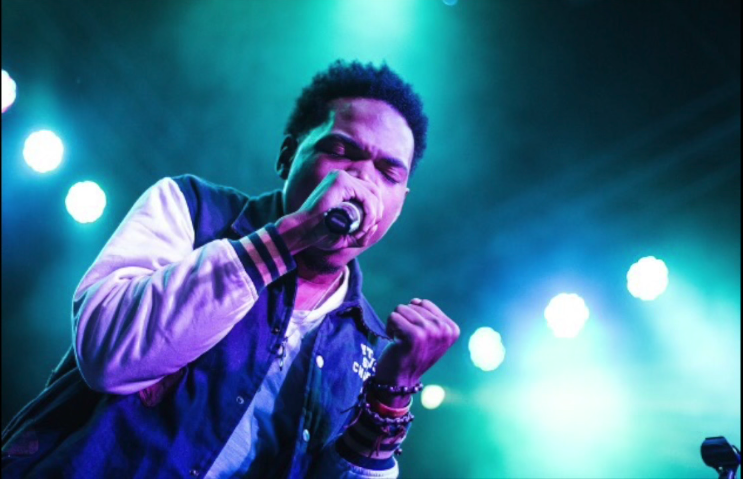Views expressed in opinion columns are the author’s own.
In 2011, a high school senior from West Chatham on Chicago’s south side was suspended from school for marijuana possession. With his time off, young Chancelor Bennett was particularly industrious and recorded a mixtape called 10 Day, in honor of his mandatory break from education. Today, he’s better known as Chance The Rapper, one of the biggest names in music.
Chance stands out from the pack for a variety of reasons. He’s an independent artist who’s been enormously successful without the backing of a major label. He releases most of his work for free. The focal points of his music are positivity and self-efficacy. He’s gotten a hug from Beyoncé, wears overalls on the regular and has hung out with Barack Obama.
Last Friday, he sat down with Illinois Gov. Bruce Rauner to discuss education funding for Chicago’s public schools. This comes in the wake of Rauner’s veto of a $215 million pension relief cash infusion into a school system counting on the money for its annual budget.
The backstory is that Rauner, a Republican, has been locked in a budgetary struggle with Illinois Senate President John Cullerton, a Democrat. Rauner intended to affix the $215 million to a series of pension reforms, and after the Senate’s pushback, he simply vetoed the funding. Mayor Rahm Emanuel called the veto “reckless and irresponsible,” and observed that “our children will pay the price” for Rauner’s political machinations.
Perhaps it’s unsurprising that Chance, whose father was an aide for former Chicago Mayor Harold Washington, would delve into politics. He and Rauner sat down and, by all accounts, had a wholly unproductive meeting Chance later described as a “lecture.” In an address made at Wescott Elementary School, Chance gave a succinct summary: “Our kids should not be held hostage because of political positioning.”
Bruce Rauner’s use of funding as a political tool in a divided district is hardly a unique approach. He’s also far from the only “bad guy” with a hand in a school system where just 57 percent of black males like Chance graduate from high school (which, it’s worth noting, is an improvement from recent years). The school system is facing a debt load of around $7 billion and is operating in what a financial firm director describes as “crisis mode.”
The implicit problem, of course, is that such stresses run downhill: The budget crisis manifests in less adept teachers, fewer classroom resources and an utter inability to provide accommodations for the students who need them. Even more acutely: This year, officials warn they might be forced to cut the school year three weeks short.
The root of the budgetary crisis isn’t political skullduggery. Rather, it’s a system where school funding is derived from local property taxes. That puts schools that serve low-income districts at a huge disadvantage: high population density, low property taxes (due to subsidized housing), and ultimately, budget shortfalls.
The Chicago Public School System handles about 20 percent of the state’s students, but operates with only 15 percent of the state budget. About 85 percent of CPS students are African-American or Latino. In social science, that’s called “concentrated disadvantage” — when a poverty-driven collapse of the tax base deprives the same populations in poverty of opportunities to break the cycle.
This week, Chance The Rapper, CPS graduate, made a $1 million donation to the school system. A drop in the bucket, perhaps, but this is truly a case in which the thought is what counts. The Illinois state legislature has sat and watched gross systemic inequities grow for the last 20 years. If it takes of one of Chicago’s native sons to open the dialogue, so be it. As it happened, that administrator who suspended a high school senior for those ten days back in 2011 might have given CPS a chance.
Jack Siglin is a senior physiology and neurobiology major. He can be reached at jsiglindbk@gmail.com.



